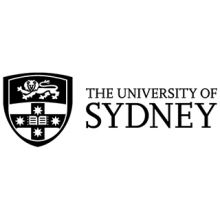Thomas Maschmeyer is founding director of the University of Sydney’s Laboratory of Advanced Catalysis for Sustainability. In 2015, he launched a university spin-off company, Gelion, to develop a new type of battery that can store renewable energy inside building walls. In September, he was awarded the 2018 R. K. Murphy Medal from the Royal Australian Chemical Institute as well as the 2018 Eureka Prize for Leadership in Innovation and Science.
Where and when were you born?
Hamburg, Germany, in 1966.
How has this shaped who you are?
It was the Cold War era. We were acutely aware of the Russian short-range tactical missiles pointing at West Germany, and the American ones pointing at East Germany. That made for a certain degree of creative tension that’s still with me.
Can chemistry save the planet?
It’s very much the technological foundation for saving the world, from a physical point of view. It’s all about understanding from the atomic level up and working out what’s possible. Whether it’s in batteries or big industrial processes, I always try to look at the world from a molecule’s point of view and how I can convert – for example – waste plastic into fuel oils, lubrication oils, waxes or oils that can be used to make new plastics. But we can only create tools for society; we can’t force society to take them up. Somebody must want to use them, which is the reason I set up companies. That way, I can show people that if they use my ideas, they can make some money.
How many companies have you set up?
Six. Two of them have gone into the dustbin of history. Four of them are still good. The first was Avantium in the Netherlands. It listed on the European stock exchange last year for more than $300 million [£228 million]. Then I co-founded a company called Ignite Energy, taking brown coal and making oils and steel-making coal. It allows the whole infrastructure of brown coal mining for power to be in part maintained. We’re maintaining the value chain in terms of the cost of investment and the jobs, and we reduce carbon dioxide emissions.
If you’re still burning brown coal, how do you reduce carbon dioxide emissions?
Brown coal is currently used to produce power. Brown coal is wet, so the efficiency of burning is very low – think of putting a wet log into a fire. We densify that energy into oil and really high energy-dense coal. It means I get a lot more bang for my carbon dioxide emission. You get the same carbon dioxide emission, but per unit of energy released, it’s a lot less.
The technology behind another of your companies, Gelion, is a re-engineering of old zinc-bromine batteries. How did you get the idea?
It was a failed experiment on gels, funded by public research. It was a total and utter failure. I had it in my drawer for three or four years. Then came this battery opportunity, where I learned what zinc-bromine batteries needed to do. I thought, I can do this a lot better with my failed gel. With good-quality basic science, you can never predict what it will be used for. Without that failed experiment, there would be no company, no 22 jobs, and no hopes for global roll-out of the technology.
Could we see a day when the buildings we live in are, in essence, batteries?
In my view, it’s an absolute certainty. The reason is simple: it’s going to be economic madness not to do it. Five to 10 years from now, typical houses will be covered with solar tiles of some sort, and the supporting structures will contain batteries as thermal mass as well as energy-storage media. People say, that’ll never happen. Well, think about the smartphone. In 2000, if I’d said you could have a diabetes monitor hooked on to your phone, people would have laughed.
University isn’t cheap. If you had your time over, would you do it again?
I lived with grandparents who’d gone through two world wars. They always said, the one thing people can’t take away from you is what you know. It’s really important to invest in education. It is important to try to match one’s intellectual capacity and interests to the level of one’s education – not doing so can lead to considerable dissatisfaction later in life.
What advice do you give junior researchers?
I’ve got a little model that has been quite useful: I look at it as a pie chart with three equal slices. One slice is everything you know, your character, who you are. The second slice is everybody who you know, in terms of your network. The last slice, very importantly, is timing – over which you have very little influence. If you know a lot, and you know a lot of people, the chances of being in the right spot at the right time are much higher. So, work at yourself, work at the people around you, and opportunity will come.
Is that the advice you’d give your younger self?
I’d say be a bit more chilled out early on, trust in your talent more fully, and know that it will work out one way or another.
What has changed most in higher education over the past decade or so?
The funding models around the world have changed, in part because of changing demographics. The trend is funding per attending student, rather than funding per completion. With funding per completion, one can focus more on quality. The intake is reduced and the quality at the initial intake is a little higher. Of course, the counterargument is that people from disadvantaged backgrounds would never have the chance. But I would like to set the dial a bit differently and focus on student completions.
john.ross@timeshighereducation.com
Appointments
Kevin Hallock has been appointed dean of the SC Johnson -College of Business at Cornell University. Professor Hallock, currently the Kenneth F. Kahn ’69 dean and Joseph R. Richard ’80 professor at Cornell’s School of Industrial and Labor Relations, will take up his new post in December. Created in 2016, the college brings together the Charles H. Dyson School of Applied Economics and Management, the School of Hotel Administration and the Samuel Curtis Johnson Graduate School of Management. “The [college], in its infancy, faces challenges, like many new organisations, and those challenges are part of what attracted me to this role,” Professor Hallock said. “But there is also enormous opportunity, outstanding strength and unique advantages.”
Kate Oakley has become the new head of the University of Glasgow’s School of Culture and Creative Arts. Professor Oakley, an expert in the cultural and creative industries, has joined Glasgow from the University of Leeds, where she was professor of cultural policy. Roibeard Ó Maolalaigh, vice principal and head of Glasgow’s College of Arts, said Professor Oakley would “play a major leadership role in
working to enhance the visibility and impact of the university, its research and knowledge exchange in the cultural and creative sector”. Professor Oakley said she was “looking forward to supporting the city’s aspirations to continue growing a vibrant cultural and creative arts sector in Glasgow”.
The University of Aberdeen has appointed Karl Leydecker as senior vice-principal. Professor Leydecker, currently vice-principal (teaching and learning) at the University of Dundee, will change roles early next year. Professor Leydecker said that the arrival of George Boyne as Aberdeen’s new principal made it an “exciting time” for the institution.
Shirley Thompson has been appointed vice-principal (music) at the Royal Birmingham Conservatoire, part of Birmingham City University.
William Nguyen, a decorated Iraq war veteran, has been appointed chair and professor of military science at Clarkson University. Major Nguyen will join the private university in the state of New York having completed four tours of duty in Iraq, as well as working with non-governmental organisations in Afghanistan.
Register to continue
Why register?
- Registration is free and only takes a moment
- Once registered, you can read 3 articles a month
- Sign up for our newsletter
Subscribe
Or subscribe for unlimited access to:
- Unlimited access to news, views, insights & reviews
- Digital editions
- Digital access to THE’s university and college rankings analysis
Already registered or a current subscriber?






